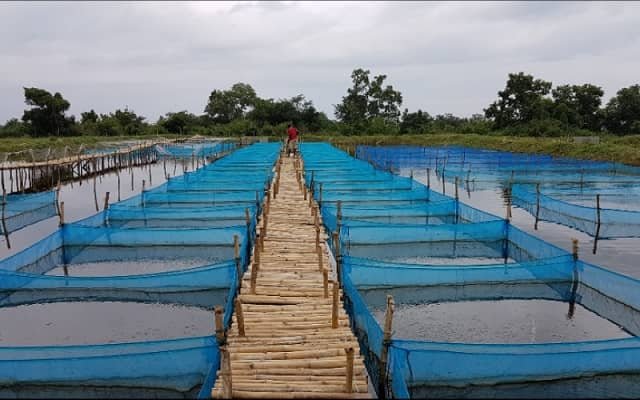Rome, Italy.- The “Practical Training Manual on Doing Aquaculture as a Business for Small and Medium-Scale farmers” is composed by two modules: Module 1 “The Technical Dimension of Doing Aquaculture as a Business” and Module 2 “The Economic Dimension of Doing Aquaculture as a Business” The target users of both modules are small and medium-scale fish farmers.
Module 1 “The Technical Dimension of Doing Aquaculture as a Business”
The purpose of this module is to enhance small and medium-scale fish farmers’ knowledge and capacities in understanding and applying the basic technical principles and concepts of doing aquaculture as a business in their daily activities.
Module 1 introduces the factors affecting primary productivity, carrying capacity, growth rate and yield in water, the general criteria for classifying the aquaculture systems and the main features of pond and cage based fish farming systems.
The concepts of seed production, nutrition and feeds and harvest and post-harvest practices are also introduced.
Module 2 “The economic dimension of commercial aquaculture”
The purpose of this module is to enhance their knowledge and capacities in understanding and applying the basic economic and financial principles and concepts of commercial aquaculture in their daily activities.
Stay Always Informed
Join our communities to instantly receive the most important news, reports, and analysis from the aquaculture industry.
Reference (open):
FAO. 2017. Doing aquaculture as a business for small‐ and medium‐scale farmers. Practical training manual. Module 1: The technical dimension of commercial aquaculture, by Ana Menezes, Nathanael Hishamunda, Leonard Lovshin and Elisabetta Martone. Addis Ababa, Ethiopia; Rome, Italy.
http://www.fao.org/3/a-i7461e.pdf
Hishamunda, N., Martone, E. & Menezes, A. 2017. Practical Training Manual on Commercial Aquaculture for Small- and Medium-scale Farmers. Module 2: The Economic Dimension of Commercial Aquaculture. Addis Ababa; Rome, FAO. 26 pp.
http://www.fao.org/3/a-i7798e.pdf
Editor at the digital magazine AquaHoy. He holds a degree in Aquaculture Biology from the National University of Santa (UNS) and a Master’s degree in Science and Innovation Management from the Polytechnic University of Valencia, with postgraduate diplomas in Business Innovation and Innovation Management. He possesses extensive experience in the aquaculture and fisheries sector, having led the Fisheries Innovation Unit of the National Program for Innovation in Fisheries and Aquaculture (PNIPA). He has served as a senior consultant in technology watch, an innovation project formulator and advisor, and a lecturer at UNS. He is a member of the Peruvian College of Biologists and was recognized by the World Aquaculture Society (WAS) in 2016 for his contribution to aquaculture.




